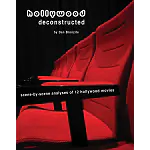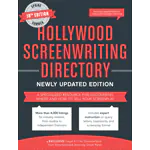The Selfless Hero
When we think of a hero in a movie we immediately assume we are talking about the central character otherwise known as the Protagonist, but many stories conceal a…
Nuvotech’s Creative Writing Software Now Available from Best Buy and Amazon in Canada
UK technology company Nuvotech today announced the availability of their popular creative writing software Movie Outline 3 and Script It! to Canadian customers through Best Buy's Canadian online store.…
High Concept Movies
For some screenwriters, penning an original high concept movie is the holy grail. And that can be a good thing or a bad thing. These days, the majority of…
Mixed Genres Can Lead to a Confusing Script
Writers get ideas for movies in various ways. Sometimes it’s overhearing a conversation on the bus, other times it may be a dream that inspires you to write a…



